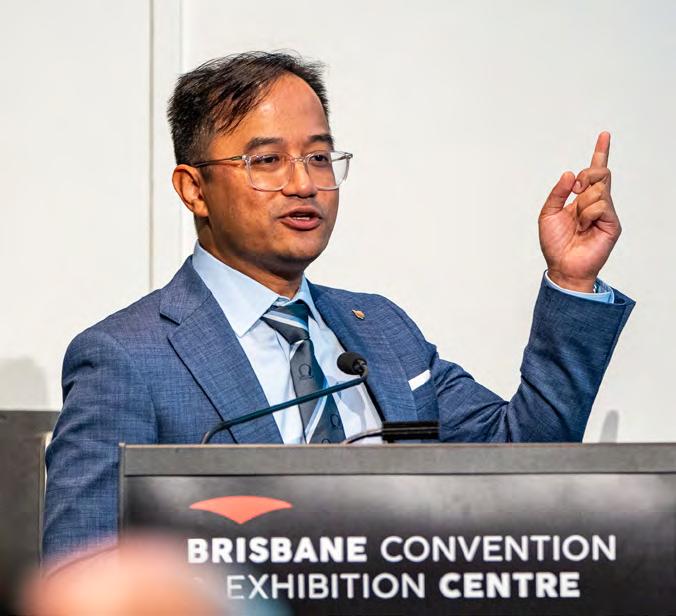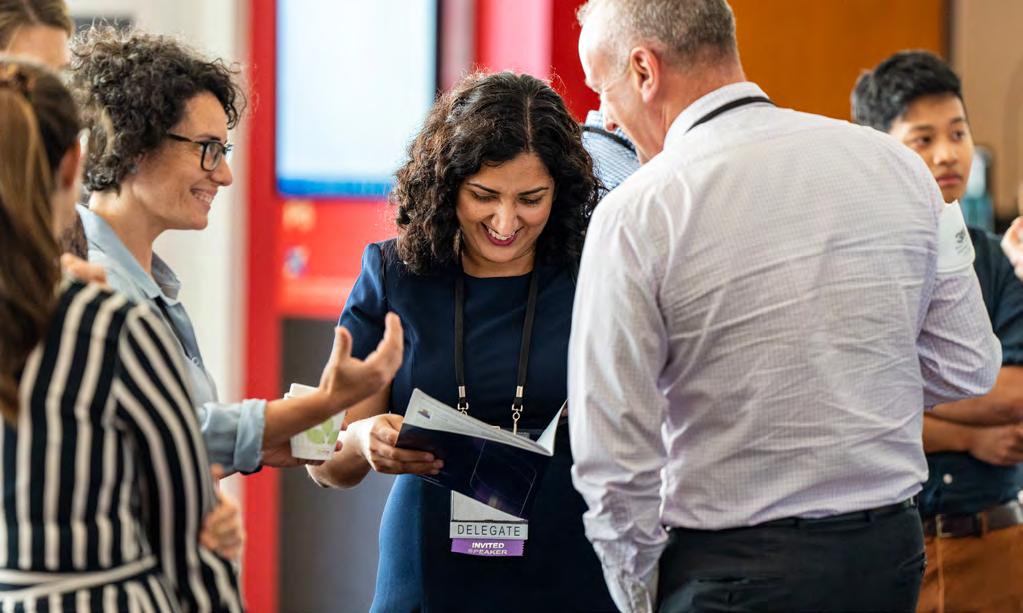
4 minute read
Developing a Career and Skills in Academic Surgery (DCAS) Course
Speakers at the Developing a Career and Skills in Academic Surgery (DCAS) Course provided participants with useful information on how to develop a career that involves research and medicine
Advertisement
The 13th DCAS Course was held in a hybrid format in Brisbane on 2 May 2022. The one-day course offered attendees motivation and advice in developing a career that involves both research and medicine. We were honoured to host guests from both the Association for Academic Surgery (USA) and Aotearoa New Zealand. The day provided attendees and faculty with ample opportunity to network. Dr Sally Langley, President of the Royal Australasian College of Surgeons, welcomed the participants and the faculty. The day started with a session on exploring careers in academic surgery. Professor Christobel Saunders provided insight into why every surgeon should involve academic thinking in their career and practice. Professor Andrew Hill encouraged participants to indulge their curiosity—seeking answers and building an understanding on research methodologies and topics. Assistant Professor Callisia Clarke elaborated on how to navigate mentor-mentee relationships and advocated for open dialogue through connecting, communicating, celebrating, collaborating, circulating and cultivating events. Professor Marc Gladman offered his top 10 tips for supervisors of higher degree students and how to achieve timely completions. The second session focused on new directions and challenges in surgical academia—giving insight into research with Indigenous cultures, navigating impact factors and social media, and identifying journals for research. Professor Kelvin Kong began the session by encouraging researchers to have dialogue with Indigenous communities to understand and further improve engagement to ensure their perspective is respected. Associate Professor Colin Martin presented on communicating research, considering cost, speed of disseminating information and whether social media can influence the spread of information. Finally, Dr Juliet Emamaullee elaborated on choosing appropriate journals to publish in and avoiding predatory publishers. The ‘Hot Topic: Burnout and mental health in academic medicine’ was given by Dr Eric Levi (pictured below). He advocated for the recognition of the problem and developing a culture in departments and hospitals to improve wellbeing among healthcare professionals. Indicating that leaders influence culture, Dr Levi recommended that wellbeing should involve physical, social, mental and occupational aspects. Session three focused on tools for academic output with Associate Professor Shipra Arya sharing the best ways to prepare abstracts. The take away points included avoiding vague titles and developing titles that are conclusion driven rather than method driven. Associate Professor Christina Roland elaborated on how to present at scientific meetings, with suggestions on how best to optimise information on slides—leaving time for questions and delivering a strong oral presentation. Professor Amir Ghaferi concluded the session with advice on manuscript writing, encouraging participants to frequently write, and that the adage ‘write drunk, edit sober’ can help with writer’s block.

The keynote address from Professor Mark Smithers (pictured left) from the University of Queensland centred on building and maintaining an academic career. He challenged attendees to consider what they wanted in their careers, emphasising that collaboration is key. This along with time management skills should be focus areas of prioritisation and planning. Building a combination of skills through versatility would allow them to gather knowledge and provide them with opportunities to disseminate knowledge to other healthcare professionals. The first concurrent workshop focused on ‘finding your fit’ with presentations covering translational research, clinical research involving cohort studies, collaboration and trials, and interdisciplinary research. The second concurrent session focused on surgical research funding and elaborated on successful grant writing, identifying the best research funding for research and strategies for greater grant success with Medical Research Future Fund and National Health and Medical Research Council applications. Finally, Professor Ian Bissett provided an overview of his early surgical years living in Nepal and Aotearoa New Zealand and overcoming obstacles in practice and research. His five lessons were interspersed among stories of having to adapt tools and troubleshoot problems in difficult situations. Professor Bissett concluded by encouraging attendees to focus on the hidden curriculum in experiences and “what you teach others when you are not focused on teaching”. Feedback from participants indicated that the presentations were well received and beneficial.
Authors
Jonathan Karpelowsky, Co-chair DCAS Course
Colin Martin, Co-chair DCAS Course
This scholarship is valued at AUD$66,000 and focuses on developing clinical practice guidelines and undertaking evidence reviews. The Evidence Guidance Research Scholarship supports the recipient in developing clinical practice guidelines and undertaking evidence reviews on topics important to surgeons and patient care. The recipient will gain a unique insight into how evidence shapes surgical practice to improve patient care that underpins reimbursement decisions. Applications close 31 October 2022. To find out more and apply, visit: https://bit.ly/3d3j548










